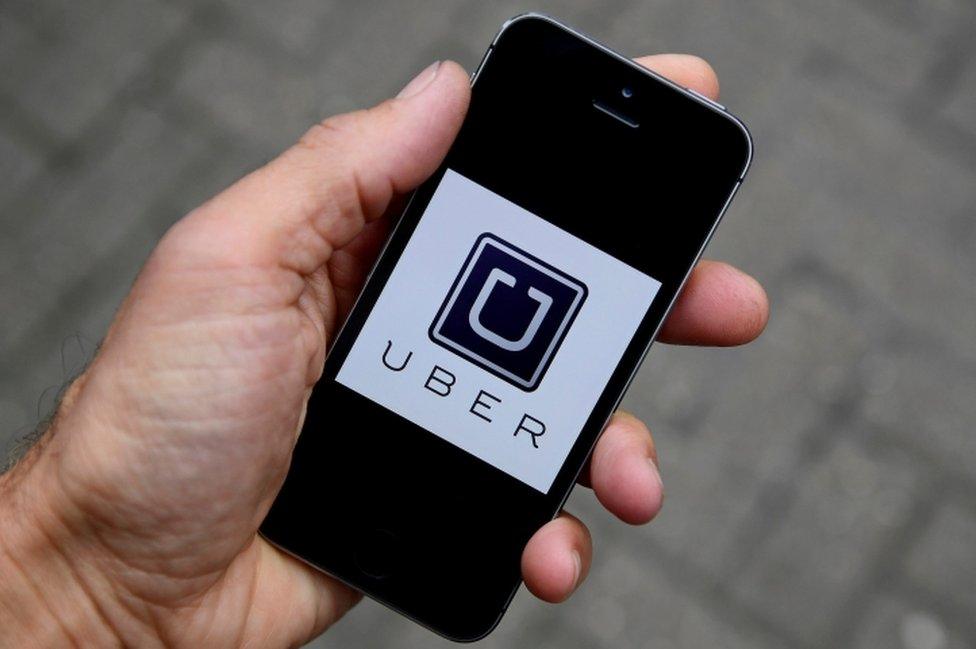Uber to stay in Quebec after threatening to quit the province
- Published

Uber has backed down from its threat to leave the Canadian province of Quebec over new rules it felt were too restrictive.
The ride-sharing company, based in San Francisco, was due to halt its operations in the province on Saturday.
Uber Quebec says it sees a chance to start a "constructive dialogue" with the province's new transport minister.
The company was concerned about regulations that will require drivers to undergo police background checks.
Uber drivers will also need to complete 35 hours of training, before being allowed to pick up passengers.
Those rules came out in September, almost a year after the provincial government agreed to let Uber operate in Quebec on a trial basis.
New provincial transport minister Andre Fortin said on Friday that current Uber drivers will now have up to two years to get police background checks, as opposed to going through a criminal check with a private company.
Drivers who sign on after 15 October will need to complete the check within eight weeks.
All Uber drivers will still need to complete the extended training course, placing them on par with taxi drivers in Quebec.
Mr Fortin said in a statement that "this simple change does not change Uber's obligations" and that it was an issue of "fairness for all market partners and for user safety".
Uber has 50 office staff and about 10,000 drivers across Quebec, which includes Canada's second largest city, Montreal.
Two Uber drivers take opposing views on how the company should treat them
The global company on Friday also filed an appeal against a decision by London authorities to deny it a licence to operate in the city.
London transport authorities refused Uber a new private hire licence, saying the ride-hailing firm was not fit and proper on the grounds of "public safety and security implications".
Uber has been roiled by a string of controversies in recent months.
In July, chief executive Travis Kalanick, who helped found the company in 2009, resigned following a series of scandals and criticism of his management style.
In June, 20 staff were sacked in the US after a law firm investigated complaints made to the company about sexual harassment, bullying and retaliation for reporting problems.
Last year, Uber lost a landmark employment tribunal in the UK which ruled drivers should be classed as workers rather than being self-employed.
- Published13 October 2017
- Published26 September 2017